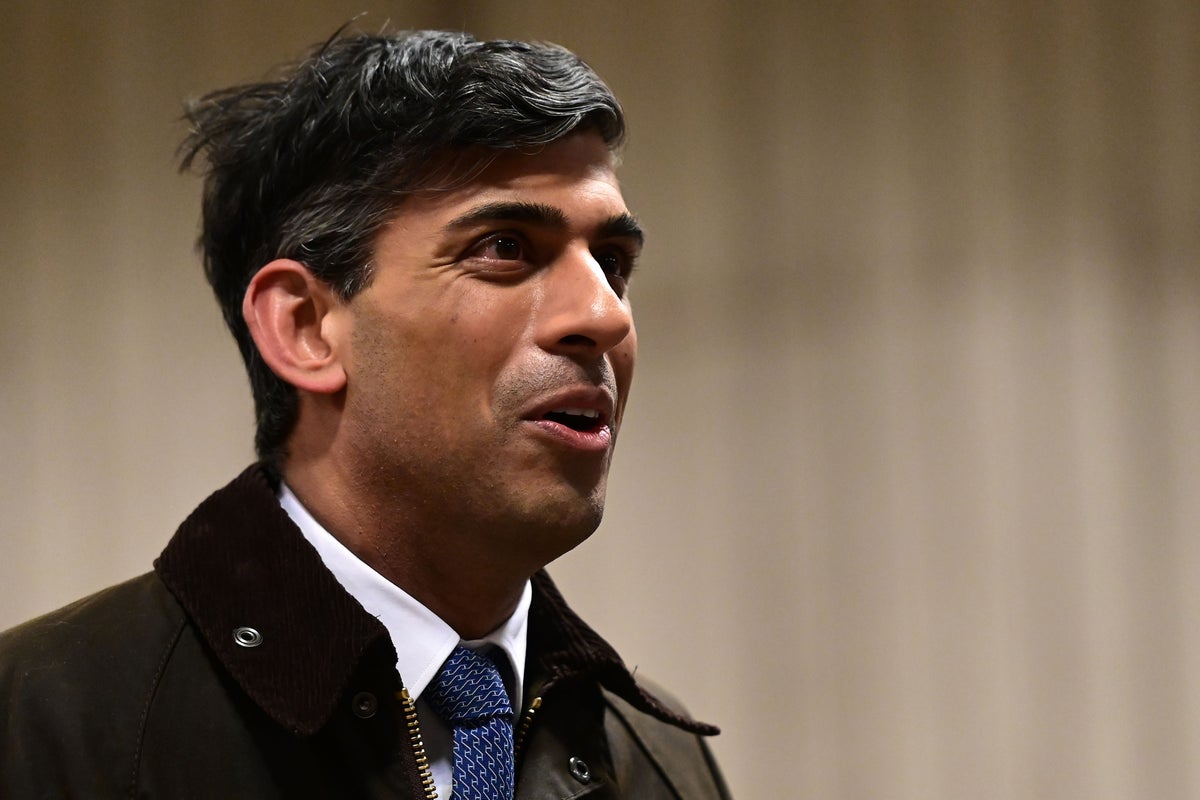
Rishi Sunak is benefiting from a lower effective tax rate due to most of his earnings coming from capital gains rather than employment income, a tax expert has said.
Dan Neidle, a tax lawyer, said it was a “very good question” whether the law should continue to allow capitals gains to be taxed less than employment income.
It comes after Mr Sunak published his long-awaited tax documents on Wednesday, showing that he paid more than £1 million in UK tax over the previous three financial years on earnings totalling £4.7 million.
Mr Neidle, whose work helping to expose Nadhim Zahawi’s tax affairs resulted in the former Conservative Party chairman’s resignation, said Mr Sunak’s effective rate of tax was far lower than if the majority of those earnings had been made via employment.
The documents show that Mr Sunak made nearly £2 million through income and capital gains in 2021/22.
His income from dividends was £172,415, and from capital gains was £1.6 million.
For that same financial year, it showed that he paid £432,493 in tax in the 2021/2022 financial year.
Weirdly Mr Sunak, who benefits from that low rate, is also the man who has the power to change it— Dan Neidle, tax lawyer
Speaking to Sky News, Mr Neidle said the Prime Minister paying an effective rate of 22% was “not because he has done anything clever or because he is avoiding tax”.
He continued: “It is because in this country we tax employment income at up to 47% but capital gains on investments at only 20%.
“That is why his effective rate is so low.
“Whether that is a fair result, whether the law should be like that, is a very good question.
“And weirdly Mr Sunak, who benefits from that low rate, is also the man who has the power to change it.”
Mr Sunak dodged a question about whether capital gains tax should be higher during a visit to North Wales.
The Prime Minister told broadcasters: “I said I would publish my tax returns. I was pleased to be able to do that yesterday in the interest of transparency.”
A senior Labour MP appeared to swerve questions on whether her party would reform capital gains tax to bring it closer to income tax.
Reacting to the publication on Wednesday, deputy Labour leader Angela Rayner said Mr Sunak’s tax details “reveal a tax system designed by successive Tory governments in which the Prime Minister pays a far lower tax rate than working people”.
It was read by some commentators as a signal that Labour could choose to reform the tax rate if the party gets to power.
Shadow home secretary Yvette Cooper, asked about the comments on BBC Radio 4’s Today programme, said Ms Rayner was making a “broader” point about changes to tax policy under the Conservatives.
Ms Cooper said: “Everybody else is ending up paying more and I just think that’s not fair.”
Most of Mr Sunak’s earnings related to a US-based investment fund listed as a blind trust, according to the summary.
Mr Neidle said it was designed to “avoid any conflict of interest”, meaning Mr Sunak would not see how his investments were being managed.
“This kind of blind arrangement, I don’t think anyone does it except politicians and it is not a term of art – there is no such legal thing as a blind trust,” he said.
“So exactly what they are legally is slightly fuzzy.”
Mr Sunak, who is regarded as among the richest inhabitants of Downing Street, first pledged to publish his tax returns during his unsuccessful campaign to become Tory leader last summer, in an attempt to put transparency at the heart of his bid.
He repeatedly promised to do so in recent months, and faced continued pressure to release the documents when it emerged former cabinet minister Mr Zahawi settled an estimated £4.7 million bill with HMRC while he was chancellor.
Rather than a full tax return, No 10 published “a summary” of Mr Sunak’s UK taxable income, capital gains and tax paid as reported to HM Revenue & Customs, prepared by accountancy service Evelyn Partners.
Critics questioned the timing of the release, accusing No 10 of attempting to bury the tax statement under other headlines, coming on the same day as former prime minister Boris Johnson faced questioning over allegations he misled Parliament about lockdown parties in No 10 during the pandemic.
Polling expert Lord Hayward was non-committal when asked on Sky News whether Mr Sunak’s sizeable earnings would have an impact on the polls.
The Tory peer told Sky News: “It doesn’t come as a surprise that he is a rich man.”
The political analyst said inflation being found to have risen in February indicated that Mr Sunak, who has made slashing inflation by half a key goal of his premiership, would delay the next general election until October or November 2024.
Expectation had grown that the Prime Minister would call the next Westminster election, which can take place no later than the end of January 2025, in summer or even spring next year.







